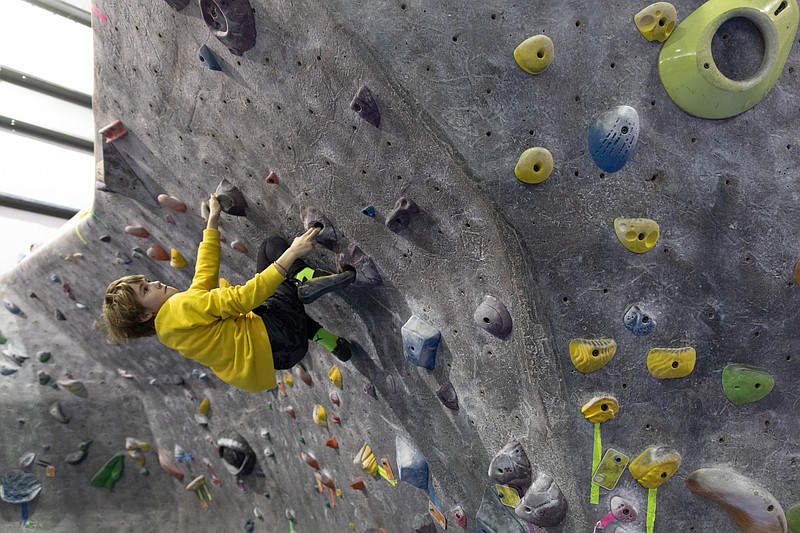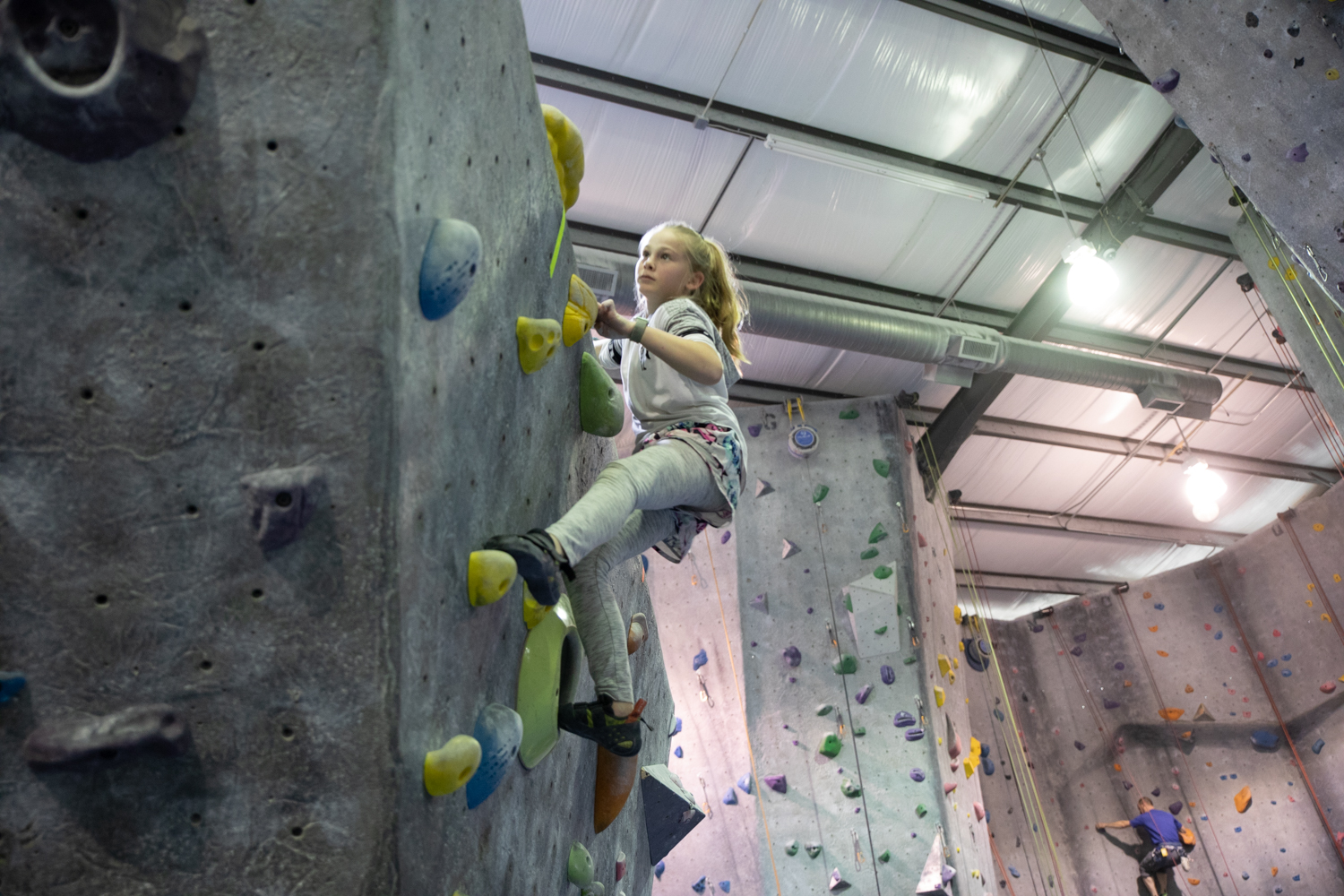When choosing members for the McCallie School climbing team, coach Jake Altemas and his assistants analyze how the students fail.
"How do they deal with failure? If it doesn't work the first time, is there a second time? If it doesn't go the fifth time, is there a sixth time?" Altemas says. "Do they have the willingness to stay with it?"
Altemas is the director of outdoor programs at McCallie School, which competes in Outdoor Chattanooga's Interscholastic Climbing League. Over six meets at local climbing gyms, the climbers - middle and high school students from around the area - compete in teams to improve not only their own score but also that of their team.
"Climbing tends to be a very selfish sport, especially inside," Altemas says. "Without a team framework you really lose a lot of the educational aspects that are desirable for sports within a school setting."
A better climber is one with core strength, body control and traditional athleticism, he admits, but there needs to be a desire to compete and a drive to succeed.
Museum Magnet Upper School coach Andrew Gross sees that too. Any student who tries out for his co-ed climbing team makes it, and for many, it's their first exposure to the sport. But his 11 sixth- through eighth-graders help to keep each other accountable.
"Kids learn best from each other," he says. "You have to give them space where they can be themselves."
Gross says he can tell the students specifically what to do, but they learn better from watching and learning from their peers. Practices mostly consist of some stretching and then letting the kids take to the wall.
"When a guy sees a girl doing it, they want to do it too," he adds with a smile.
One of Altemas' philosophies as a coach is to bring aspects of competition - teamwork, communication - to real life application.
"We wind up using sports as an educational tool in academic settings. And I don't see there being a difference between what happens in the classroom as an educational opportunity as to what happens on the playing field as an educator," he says.
The 25 students competing for McCallie this year were split into three teams - and placed first, second and fifth among the 20 teams entered in the ICL. Each team selected captains, whom Altemas relied on to motivate and push their individual teams.
" ... We want everyone to have success, and within that it becomes easy to want to succeed. When the best climber on the team is proud of you for doing what you can do, that makes it OK to keep doing what you can," he says. "You need to want to want to give more, and that becomes really infectious."

